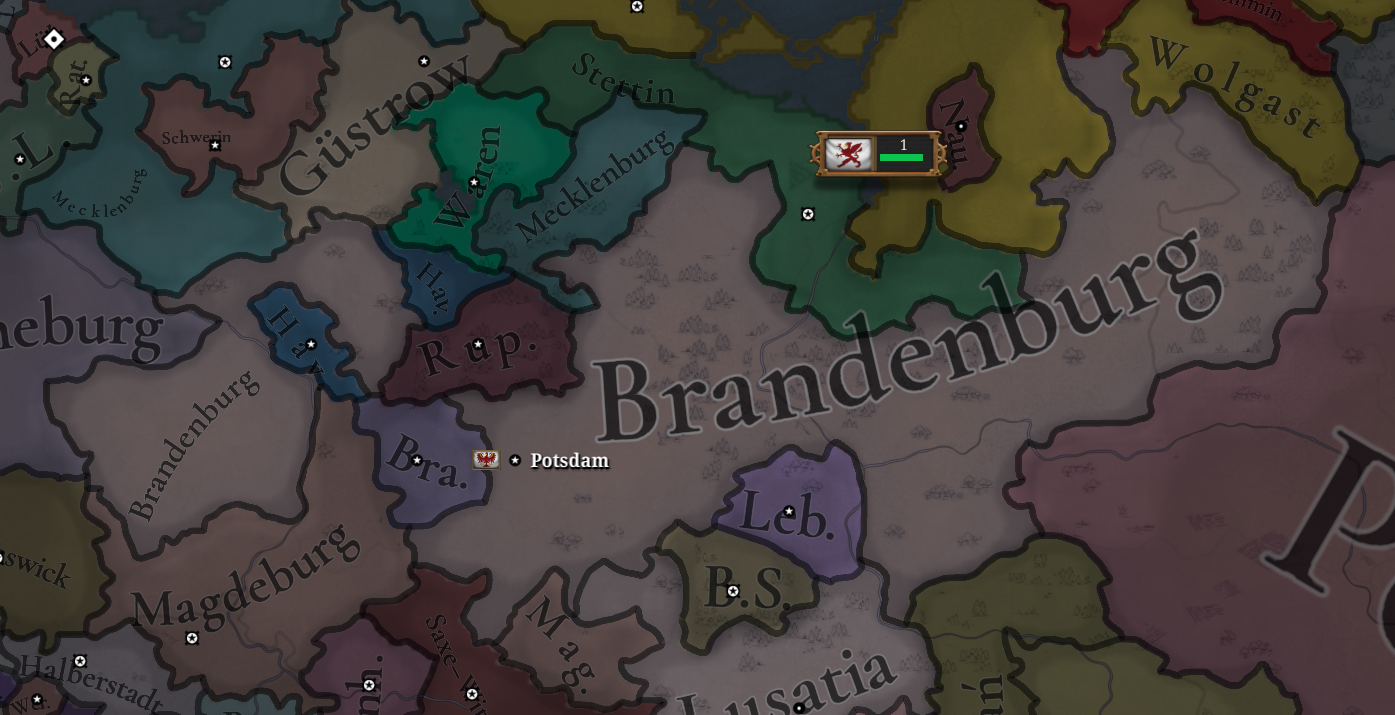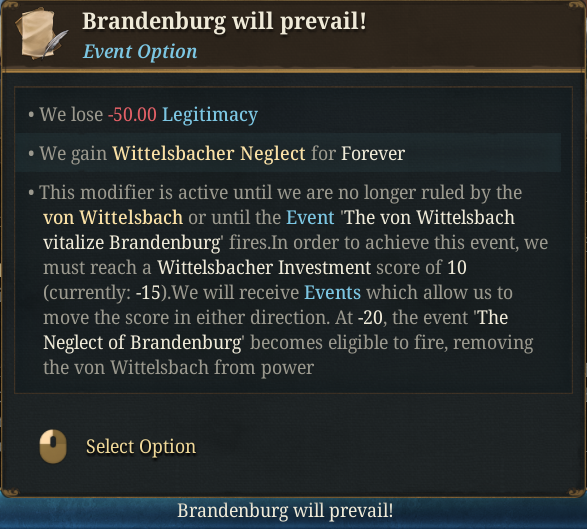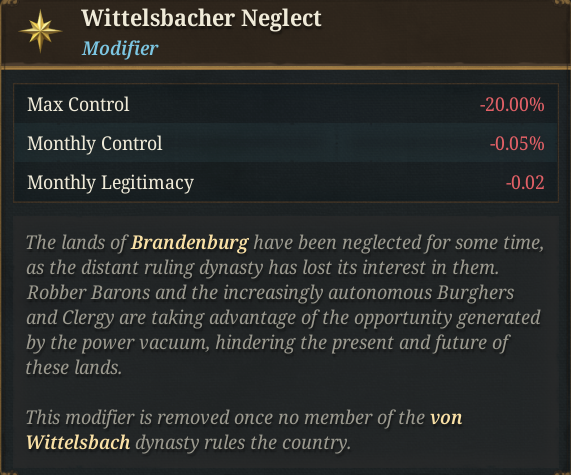Hello and welcome one more week to Tinto Flavour, the happy Fridays in which we take a look at the content of the super secret Project Caesar Europa Universalis V!
Today we will be talking about Brandenburg, and the main tag that it can form, Prussia. Therefore, today is even more special for two reasons. The first is that this is the first country that we talk about in which the content for the base country and the formable is aligned, as it was the historical result; in this category we have a few more important countries, such as England/Great Britain or Castile/Spain, of which we’ll talk more about in future TFs. The second is because we considered Brandenburg/Prussia one of the relevant tags in the period, and thus, it has more baseline content than the previous one; so far, we’ve only taken a look previously to one tag of that category, the Timurids (and you may have noticed that it was a long and meaty TF).
Let’s start now taking a look at the content, then:

As usual, consider all UI, 2D and 3D art WIP.
The starting situation of Brandenburg:



We are not attached to just showing the flatmap mode anymore! Yay!
It starts with a similar content setup to that of Saxony, which we showed some weeks ago:




Here are some of the unique advances of both Brandenburg and Prussia:






Brandenburg & Prussia might have some military-related advances, yeah… But take into account that this approx. half of the amount available, so there are non-military-related ones.
Let’s now take a look at the narrative content, which is quite meaty. This is one of the first starting events for Brandenburg:



Slightly painful…
As you see, there are around 30 events that may be triggered after this, of varied topics, that impact the governance of Brandenburg in the first decades of the game. One of the most interesting ones are those related to the ‘False Waldemar’ event chain:

I don’t think you should trust a guy that looks that way…
After the year 1500, if certain triggers are met, you might receive an event regarding this Teutonic Order, which may lead to the formation of Prussia:

Although you can also form it organically, by expanding into the area (although the Emperor may have a say in this, as historically happened):





This is a lovely color, isn’t it?
You may now figure that Prussia is a country with much more content in the late game, so I’m just going to show you some of it; but take into consideration that of the following events, the first one can trigger after 1530, the second after 1637, and the others in different dates after 1700:









Did you know that the Engine we use is named after him?
And some other content that you might get in the last two ages, as well:



And that’s all for today! It was an intense week! And the next one, even more, since we will start publishing a second Tinto Flavour on Tuesdays! Therefore, the schedule will be the following:
Today we will be talking about Brandenburg, and the main tag that it can form, Prussia. Therefore, today is even more special for two reasons. The first is that this is the first country that we talk about in which the content for the base country and the formable is aligned, as it was the historical result; in this category we have a few more important countries, such as England/Great Britain or Castile/Spain, of which we’ll talk more about in future TFs. The second is because we considered Brandenburg/Prussia one of the relevant tags in the period, and thus, it has more baseline content than the previous one; so far, we’ve only taken a look previously to one tag of that category, the Timurids (and you may have noticed that it was a long and meaty TF).
Let’s start now taking a look at the content, then:

As usual, consider all UI, 2D and 3D art WIP.
The starting situation of Brandenburg:



We are not attached to just showing the flatmap mode anymore! Yay!
It starts with a similar content setup to that of Saxony, which we showed some weeks ago:




Here are some of the unique advances of both Brandenburg and Prussia:






Brandenburg & Prussia might have some military-related advances, yeah… But take into account that this approx. half of the amount available, so there are non-military-related ones.
Let’s now take a look at the narrative content, which is quite meaty. This is one of the first starting events for Brandenburg:



Slightly painful…
As you see, there are around 30 events that may be triggered after this, of varied topics, that impact the governance of Brandenburg in the first decades of the game. One of the most interesting ones are those related to the ‘False Waldemar’ event chain:

I don’t think you should trust a guy that looks that way…
After the year 1500, if certain triggers are met, you might receive an event regarding this Teutonic Order, which may lead to the formation of Prussia:

Although you can also form it organically, by expanding into the area (although the Emperor may have a say in this, as historically happened):





This is a lovely color, isn’t it?
You may now figure that Prussia is a country with much more content in the late game, so I’m just going to show you some of it; but take into consideration that of the following events, the first one can trigger after 1530, the second after 1637, and the others in different dates after 1700:









Did you know that the Engine we use is named after him?
And some other content that you might get in the last two ages, as well:



And that’s all for today! It was an intense week! And the next one, even more, since we will start publishing a second Tinto Flavour on Tuesdays! Therefore, the schedule will be the following:
- Monday -> Tinto Maps Feedback for Great Britain & Ireland
- Tuesday -> Tinto Flavour about Vijayanagar and other ‘minor’ Indian countries
- Wednesday -> Tinto Talks about Hinduism, Jainism and Sikhism
- Friday -> Tinto Flavour about Delhi


